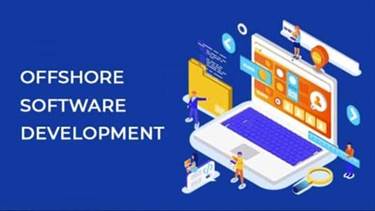Custom Logistics Software Development
This allows logistics companies to have a clear and precise view of the entire supply chain at every given instant. Fleet management software solutions also help find the shortest, cost-effective routes for faster and cheaper deliveries. Many logistics and transport companies find that logistics software makes a huge difference in streamlining their processes and improving their production cycle. In its essence, logistics management software is designed to help a company manage all production elements – from raw materials delivery to shipping to consumer outlets.
In our article, we’ve already shed the light on the core elements of secure application development. Most cloud-based TMS platforms can integrate with external Warehouse Management Systems (WMSs), invoicing systems, and proprietary solutions, enabling fast data exchange. But your stakeholders and internal departments may use some kind of different software. For instance, your finance department may be on an invoicing app that stores data in a different format than your TMS. Have your finger on the pulse of your business with our cutting-edge inventory management software. With our solutions, you’ll always know the amount and quality of the items in stock and be able to make instant inventory management decisions.
Adopting Custom Enterprise Logistics Software
Digital Transport Management Systems enable logistics companies to cut down on paper use. Therefore, all the billings and payments can be conducted through the software. With accurate data on orders, it is easy and time0saving for your accountants and financial specialists to manage finances. Manage your fleet, receive timely information about vehicle status, and ensure the most efficient usage of each truck, plane, or ship with our customized solutions. Our software development services can be of use to any company in the Transportation and Logistics domain.

As a result, the truck departs half empty, but the cost remains the same as a full load. Releasing a half-empty truck from your warehouse is like paying for delivering air! All the varied departments of your logistics operations can be unified into a single whole using low-code applications. This is because low-code applications make integrations between different departments easy.
Customizable solutions
With an on-premises solution, the company’s data is stored locally which means that a disaster might result in the complete loss of data if you don’t back it up properly. This option was the most popular in the past but was uncrowned by cloud-based TMSs. A hosted TMS provider physically installs the TMS at your company’s headquarters. Smaller businesses dealing primarily with local or domestic goods are generally looking for smaller, simpler systems. Aside from the obvious elimination of the international shipping feature, the warehousing functionality tends to be scaled back as well, designed for ease of use rather than comprehensiveness. With your files digitized the administration of your transport no longer has to be an exhausting process.
Our company adopts an agile methodology for project management, enabling us to scale our team as per project requirements dynamically. Additionally, we can engage part-time professionals to support security and DevOps tasks. This adaptable framework guarantees that we possess the essential resources and proficiency to complete your custom logistics software project on time and within the allocated budget. Our teams maintain quality through systematic testing, robust documentation, and continuous improvement methodologies. We diligently adhere to established standards and best practices throughout the project lifecycle, ensuring our solutions consistently exceed expectations.
Step 5. Approve and execute final development
As a result, the unloading process took longer than expected, and the truck fell behind schedule. The whole process is automated and doesn’t need any human intervention. The only task required of the company’s employee is to post the delivery orders in the system. This enabled the company to reduce the number of logistics managers, and cut expenses.

“Tracking” refers to items’ current locations, while “tracing” refers to items’ previous locations. Track and trace software relies on barcoding, GPS and radio frequency identification devices to collect this information. Since many freight carriers deal with international cargo, most systems support you in managing currency exchanges, customs, taxes, multiple languages, trade regulations etc. We created this guide in order to support you when selecting a logistics system that will work for your company. On average, the time to develop a medium-complexity solution varies between 600 and 3000 hours.
V Model Vs. Agile: Which Is Right for Your Project?
During the testing phase, the development team should actively identify and fix any bugs or issues that arise. This includes addressing functional defects, performance bottlenecks, and security vulnerabilities. By promptly resolving these issues, the team ensures that the software is secure, reliable, and performs optimally. It’s an approach that allows you to hire additional staff without having to deal with the actual hiring process. You find a company that already has developers hired or can find some for you in verified talent pools. They find, filter, interview, and test candidates according to your requirements.
- Many users refer to GoFreight, Transcount, World-Trak, Scope, and SBT Logistics & Supply Chain Platform as some of the best freight forwarding software.
- Further we build a roadmap plan that helps us draw an effective development plan for you.
- “Tracking” refers to items’ current locations, while “tracing” refers to items’ previous locations.
- Complicated calculations are handled by the software, so your transportation data is error-free and done quickly.
With your business growth, manual administration of multiple operations such as shipping resources, delivering goods, or managing storage may require extra resources and be potentially inefficient. This is where you might want to take advantage of the logistics custom software development services. Leverage emerging technologies for better transportation and warehouse management, route optimization, and enhanced customer service. Our asset and logistics tracking software helps with asset performance management, computerized maintenance, warehouse management, integrated workplace management, smart inventory management, and so much more. This enables smooth data exchange and process integration between the logistics management software and other systems or services within the infrastructure. Next, you will need to select a technology platform for building a custom solution.
Why Companies Need Logistics Software Development Services
On the one hand, this option doesn’t require you to pay monthly for using software — you buy it once and use it forever. But on the other hand, there’s a significant upfront cost for hardware and ongoing costs for software maintenance. You’ll also have to pay each time for upgrading the system to new versions as these are not normally included in the initial price. In this article, we help you make this hard choice and compare all the possible options.

Thus, Logistics companies that offer their services to these businesses need robust inventory management solutions. Needless to say, it will be challenging to run and grow a business amidst such chaos. Luckily, almost all of these issues can be satisfactorily resolved by deploying a custom logistics software solution. While much of logistics had already achieved a certain level of digitization a while ago, switching over to spreadsheets from paper logistics was only the beginning.
Logistics Software Development
They were dedicated to the project and made sure every stage was made visible to the client. With Zoho Creator, the apps you build or install are automatically available on iOS and Android devices. An insider look into Courier Logistics’s transformative journey from legacy software to custom apps, courtesy of Zoho Creator.

Comments closed
No comments. Leave first!